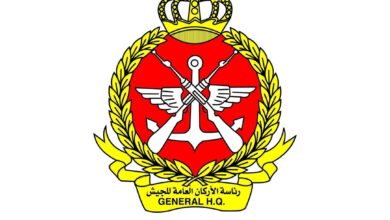Kuwait ready for any medical eventuality during Gulf Summit and Gulf Cup
Dr. Ahmed Al-Shati confirmed that the Medical Emergencies Department is fully prepared to provide medical coverage for the upcoming 45th Gulf Summit and 26th Arab Gulf Cup football championship.

• A workshop on ‘Emergency Medicine Updates: Enhancing Care in Crises’ was organized by Ministry of Health.
• Around 150 technicians, doctors, and nurses specializing in emergency care and emergencies participated in this workshop.
• It was suggested use of AI to prioritize responses and allocate resources efficiently to save lives and minimize damage during crises.
The Director of the Medical Emergencies Department at the Kuwaiti Ministry of Health, Dr. Ahmed Al-Shati, announced on Saturday that the department is fully prepared to provide medical coverage for the upcoming 45th Gulf Summit and the 26th Arab Gulf Cup football championship, both set to take place in Kuwait next December. He highlighted the coordination and cooperation with emergency medical teams across various hospitals to ensure readiness during both the mega events.
This statement was made by Dr. Al-Shati during the inauguration of the workshop ‘Emergency Medicine Updates: Enhancing Care in Crises’ that was organized by the Ministry of Health through the Medical Emergency Department. The workshop, which focused on the latest developments in medical emergencies, saw the participation of around 150 technicians, doctors, and nurses specializing in emergency care and emergencies, states Al-Jarida newspaper.
Dr. Al-Shati explained that the symposium is part of a series of programs organized by the Medical Emergency Department to support medical education and continuous professional development.
What’s more is that Dr. Al-Shati emphasized the importance of the event in improving the understanding and management of medical emergencies, focusing on the latest developments and effective strategies for handling crises.
Additionally, the symposium aims to foster cooperation among healthcare professionals and facilitate the exchange of knowledge and experiences.
As a significant development, Dr. Al-Shati highlighted that the symposium featured eight lectures addressing key topics in medical emergencies, with participation from doctors, researchers, and emergency medical technicians.
The sessions covered a range of important issues such as:
- The use of Artificial Intelligence in emergency response.
- Exploring types of emergencies.
- Disaster preparedness and risk assessment.
- Emergency management for the elderly.
- Emergency challenges in the wild.
- Mental health and psychological first aid.
Dr. Al-Shati emphasized the significance of these topics in analyzing common crises, such as natural disasters, industrial accidents, and public health emergencies.
Furthermore, he highlighted the importance of distinguishing between these emergencies to ensure effective and appropriate responses for each type, as well as utilizing modern technology to enhance the efficiency and effectiveness of emergency response processes.
Regarding implementing of technology, Dr. Al-Shati pointed out that the symposium addressed the use of artificial intelligence in analyzing big data to provide accurate predictions and improve real-time decision-making.
Practical examples were reviewed, demonstrating how AI can help prioritize responses and allocate resources more effectively, ultimately saving lives and reducing damage during crises.
Dr. Al-Shati emphasized significance of highlighting the resilience of healthcare systems in disasters, particularly in the Gaza Strip. He discussed the challenges and capabilities faced by healthcare systems during crises, focusing on strategies to strengthen the resilience of health infrastructure in the face of mounting pressures.
To conclude, the session also reviewed lessons learned from past experiences and how they can be applied to improve future disaster responses, with an emphasis on innovation and adaptation, especially in resource-limited environments.













